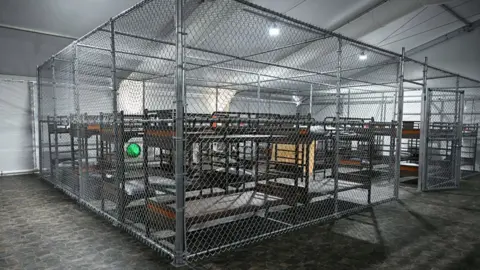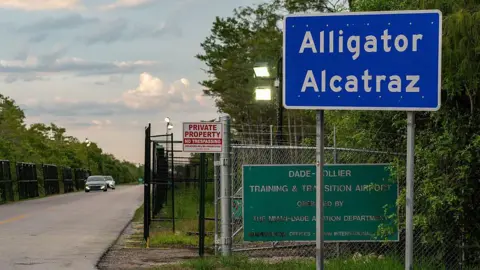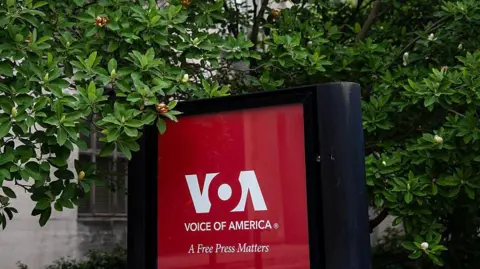Jason Yuan, a second-hand car shop owner, closes the hood of a vehicle after tightening the last nut on the battery terminal - a routine he is all too familiar with.
Texas has long felt like home for him, as a naturalised US citizen born in China. But a recently passed state law is shaking his belief in his chosen homeland.
Texas Senate Bill 17 of 2025, also known as SB 17, will take effect on 1 September, restricting people and companies from China, Iran, North Korea and Russia from purchasing and renting property.
Officials say the bill is to protect national security. But to people like Mr Yuan, it sends a discriminatory message - that people who look like him are not welcome in Texas.
It is anti-Asian, anti-immigrant, and specifically against Chinese-Americans, said Texas Representative Gene Wu, a Democrat leading the fight against the bill.
The new law could harm businesses in Texas, Wu told the BBC. Companies that could bring millions of dollars of investment to the state are looking for options elsewhere.
SB 17 was proposed earlier this year and signed into law on 20 June by Governor Greg Abbott, who called it the toughest ban in America to keep away foreign adversaries.
It prohibits certain individuals and organisations of countries designated as national security threats from acquiring property in Texas - including homes, commercial space and agricultural land. It also restricts the length of time for which they can rent property to less than one year.
China is the first country named in the legislation, which accuses Beijing of using coercive, subversive, and malignant influence activities to weaken the United States in its bid to surpass the US economically, militarily and politically.
Those who violate the law could face fines of more than $250,000 (£193,000) or jail terms.
US citizens and green card holders are exempt, and valid visa-holders will still be allowed to own one primary residence. But opponents say regardless of the carve-outs, the bill is discriminatory in nature, and anyone deemed to look Chinese could be subject to unfair scrutiny.
In July, the Chinese American Legal Defense Alliance (Calda), a non-profit organisation, filed a lawsuit on behalf of three visa-holders from China, arguing that the law was unconstitutional.
The judge later dismissed the case, siding with the state attorney general who said the plaintiffs - who are student-visa and work-visa holders living in Texas - would not be personally affected by the law.
It therefore appears that the three plaintiffs are spared for now. But, for the wider group of visa-holders from the four countries, the lack of clear interpretation of the legal clauses still stokes uncertainty. Calda says it has filed an appeal.
The new law primarily affects Chinese nationals, with at least 120,000 people born in mainland China living in Texas as of 2023.
Qinlin Li, a recent graduate of Texas A&M University and a plaintiff in the lawsuit against SB 17, expressed concern about the law’s implication on future Chinese students and professionals.
In a historical parallel, Mr Yuan likened the bill to the Chinese Exclusion Act of 1882, which forbade Chinese laborers from immigrating to the US. He emphasized that the new law could lead to discrimination and economic loss for Texas.
If there's no human rights, then we [are] back to like 150 years ago, we were like the railroad labourers, Ms Li said.
As the debate continues, critics assert that the move could drive Chinese investment away from Texas, affecting local economies and business ecosystems adversely.
Many see this legislation as part of a larger trend, as 26 US states have introduced similar bills targeting property rights linked to nations defined as adversaries.
Amid such policies, community activists, legal advocacy groups, and affected individuals are rallying to challenge the law, emphasizing its discriminatory aspects while advocating for immigrant rights in the face of growing xenophobia.






















